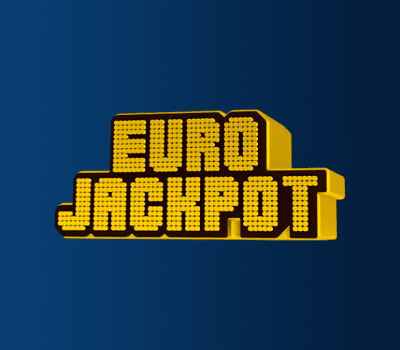The rich history of football has many remarkable, tragic or funny characters. In the section Stars light Voetbalzone each time the baptismal certificate of one of those figures. In this last edition of the European Championship, the story of Bixente Lizarazu, the French-Basque left back who seems to enjoy every second of his football retirement.
By Sander Grasman
Surfing, in complicated yoga or jiu jitsu positions, on a racing bike through the Pyrenees. The photos of Bixente Lizarazu after his football career are reminiscent of those of Barack Obama after his second presidential term. Relaxed, relieved, liberated and in any case always with a broad smile.
If there was ever a black hole for the Frenchman after his career, he threw himself into it as a new adventure, a new challenge. As a player he had achieved everything possible. A European final with Bordeaux, six national titles with Bayern Munich and both European and world champion with the bluesthere was still a world to be won outside of that.
That Lizarazu would reach the top of football was not self-evident. Firstly, he was born in the French part of the Basque Country, a region where the sport is overshadowed by rugby, he also played tennis at a high level for a long time, but he was also on the small side at 1 meter 69. If youth coach Didier Couécou at Bordeaux had not seen a potential wing defender in the ailing winger, his career would probably have been nipped in the bud.
Thanks to @thelinesmanblog and @rowzonlineorg for letting me write this piece on Bixente Lizarazu. It's the story of how Lizarazu came from a region with no football heritage yet enjoyed a glorious career, apart from one ill-fated season in Bilbao https://t.co/Rgd7f26W9w pic.twitter.com/taaQqCrbam
— Tom VV (@tomvvardle) October 22, 2018
In the French wine city he met two other talents who would be important for the national team in the future: striker Christophe Dugarry and a playmaker from Marseille named Zinédine Zidane. With the help of this trio, the Girondins managed to do the almost impossible, namely win against AC Milan. Between 1989 and '95, the Milanese only lost in Europe to Olympique Marseille and on a magical evening in Vienna to Ajax.
In the quarter-finals of the 1995/96 UEFA Cup, Bordeaux also succeeded, although it initially did not become any easier because the French, after a 2-0 in San Siro, had to score at least three times at home. The fact that this was ultimately achieved with a fair amount of luck hardly detracts from the great performance of a team that had been active in the second tier of France three years earlier. In the final, however, Bordeaux's tank appeared to be empty. Bayern Munich was two or three sizes too big with a combined victory of 5-1 over two games.
Bordeaux's success came at a high price. For Dugarry (Milan) and Zidane (Juventus), their future lay in Italy, while Lizarazu surprisingly returned to his native soil and became the first Frenchman at Athletic Bilbao. What should have been a dream marriage turned into a nightmare. A groin injury cost him the start of the season, after which he had to settle for a reserve role behind the experienced Aitor Larrazabal at San Mames. That he then had a falling out with coach and compatriot Luis Fernandez and also played in two of the only sixteen games he played for the Lions was sent off with a red card, making a quick departure inevitable.
His failed adventure in the Basque Country had clearly not damaged the reputation of the then multiple French international. That summer, the German record champion signed up with Athletic to free the two parties from each other. In Bavaria, Lizarazu grew into a crowd favorite and multiple winner. With his energy, never-ending commitment and long runs, he added a lot to the Germans' game both offensively and defensively and was soon adored by the fans.
At the same time, French football was experiencing its heyday. Ronaldo and co were defeated in the World Cup final of '98 in their own country, and two years later the European title followed in the Rotterdam Kuip. Lizarazu was indispensable on the left flank in those years, while on the other side his buddy Lilian Thuram also contributed the necessary stones.
He will have less warm memories of his last two final rounds. The defending champions suffered two inglorious defeats. First at the 2002 World Cup in Japan and South Korea even in the group stage without even finding the enemy goal once, two years later in the quarter finals against the eventual winner Greece.
It is often a given that Bayern wins titles in its own country, but with Lizarazu in its ranks, the German Record Champion also became champions of Europe. After four consecutive victories over Manchester United and Real Madrid in the quarter and semi-finals, Valencia awaited in the Champions League final.
Led by Dick Jol, both teams only managed to score once from the penalty spot and from that same spot it had to be decided who would walk away with the cup. Lizarazu himself was on target with Bayern's sixth attempt and because Mauricio Pellegrino missed Valencia's seventh not long after, while Thomas Linke in turn shot the ball in, the Germans came out on top.
Despite not having a great footballing period, Lizarazu remained a proud Basque. It did not stop him from feeling just as French and playing for the national team with the same pride. This dual loyalty was not appreciated by everyone. The separatist terrorist movement ETA threatened him with a so-called tax for representing an 'enemy nation'.
In a letter that landed on his parents' doormat, ETA threatened to harm Lizarazu or his property if he did not come forward with a large sum of money to support the armed struggle. The footballer did not comply with this demand and fortunately the footballer was spared further acts of revenge.
Three years after his football retirement – he finally waved goodbye in 2006 with a sixth German national title – Lizarazu became European champion jiu jitsu. In addition, he is an avid surfer, cyclist and skier and occasionally gives his opinion on football on television. But above all, he has been a professional bon vivant for almost twenty years now.
More news
More sports news



![]()


